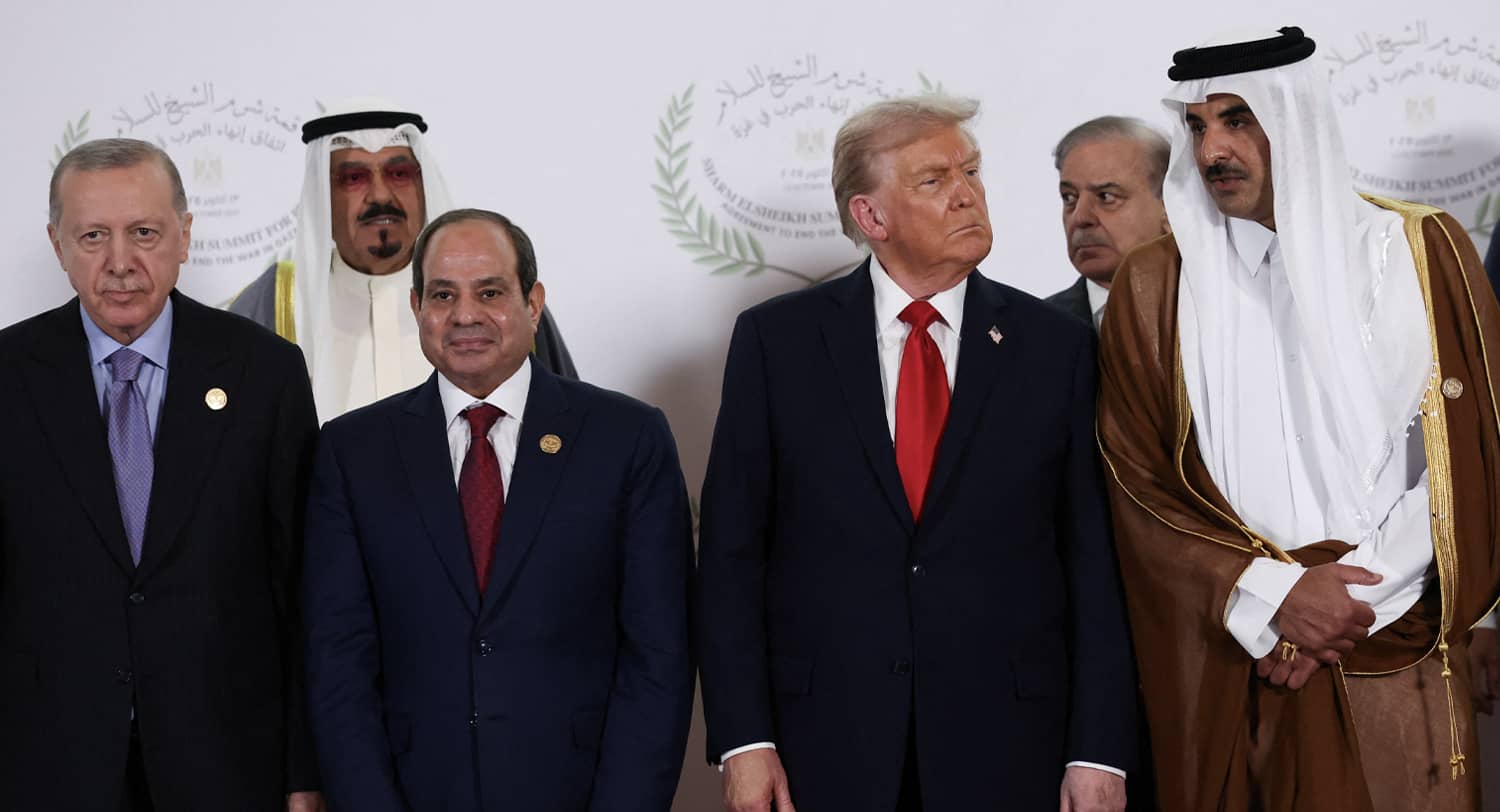Ten months into his second term, President Donald Trump has reshaped much of the Middle East’s political landscape. His team helped steady a fragile calm in Gaza, revived coordination among key Arab and Israeli partners, and signaled a broader plan to check Iranian influence.
The growing Arab-Israeli security cooperation that emerged from the Abraham Accords gives Washington a natural platform for this next phase: confronting the ideological currents that still threaten regional normalization. One long-running problem remains unresolved, the Muslim Brotherhood.
For nearly a century, the Brotherhood has been more than a party label. It is the ideological fountainhead of modern Islamism. From its doctrine grew Hamas (founded as the Muslim Brotherhood branch in Gaza) and the intellectual scaffolding for al-Qa’ida and other jihadist networks. Its sermons, literature, and outreach have shaped Islamist discourse well beyond the Middle East. Supporters present a reformist current; the record points elsewhere.
The Muslim Brotherhood motto—“Jihad is our way, death for the sake of God is our highest aspiration”—captures the fusion of piety and militancy that has marked it from the start. The organization has alternated between politics and agitation, but the through-line is consistent: secular governance is suspect, and a fundamentalist version of Islam should rule public life.
Washington has never settled on a coherent approach towards this movement. The Obama administration tested engagement on the theory that elections would moderate Islamist ambitions. Egypt’s experience suggested otherwise. Mohamed Morsi’s brief rule (2012–2013) featured a rewrite of the constitution (to reduce press freedom), pressure on minorities, and narrowing space for dissent. Mass protests ended his tenure and, with it, the argument that Islamism and pluralism easily coexist.
Arab governments drew their own conclusion. Egypt, Saudi Arabia, and the United Arab Emirates designated the Brotherhood a terrorist organization and moved against its media and financial arms. The networks adapted, shifting leadership to Turkey and Qatar, where exiled figures run satellite channels, charitable fronts, and research outfits that sustain the brand. From these hubs, the movement continues to shape Islamist narratives and attack Muslim moderates.
For the United States, confronting the Brotherhood is less a theological debate than a question of security and credibility. The administration has already deepened ties with states that view the movement as an existential threat. Aligning policy with those partners would strengthen counterterrorism work and show that Washington takes the ideological drivers of instability as seriously as the military ones.
A Phased Approach
Targeted designations. Rather than a blanket proscription, begin with the most active, well-funded networks headquartered in Istanbul and Doha. Focus on entities that provide financial and other material support for violence. This draws a line between ordinary religious life and political Islamism that incubates extremism.
Financial intelligence. Work with Arab allies that already hold detailed data on Brotherhood-linked accounts and foundations. A joint task force under the US Treasury and Emirati, Saudi and Egyptian finance ministries could trace and freeze assets, close legal loopholes, and ensure charitable fronts are not ideological or logistical pipelines. Cutting financial arteries will matter more than public statements.
Quiet leverage with hosts. Turkey and Qatar maintain substantial security and investment ties with the United States. Those relationships create leverage. Link arms sales, market access, and bilateral initiatives to measurable curbs on Brotherhood media platforms and fundraising networks.
Compete on ideas. The Brotherhood’s staying power rests on a claim to moral legitimacy that resonates where state institutions fail. Washington can back partners that are building alternatives—programs that elevate civic identity, coexistence, and education reform. The UAE’s tolerance initiatives and Saudi Arabia’s modernization of religious curricula offer workable, if imperfect, models. The aim is not to dictate theology but to show that faith can inform moral life without dominating political life.
Strategic Clarity
American policy has long been inconsistent. Hamas, a branch of the Muslim Brotherhood, is designated a terrorist organization, while the parent movement still operates in Western capitals under the banner of “political Islam.” That gap confuses allies and emboldens adversaries. Clarifying the US position would tighten coordination with partners already engaged in the ideological fight.
Timing matters. The Gaza war’s aftermath has revived debates on governance, reconstruction, and the place of Islamist movements. Allowing Brotherhood networks to set the terms of those debates risks undermining practical arrangements that reward cooperation over ideology.
Some will argue that pressure on the Brotherhood alienates “moderate Islamists.” Yet in Egypt, Tunisia, and Sudan, publics that once backed Islamist parties have grown skeptical after repeated governance failures. The regional mood favors functionality over slogans. US policy should reflect that reality.
Confronting the Muslim Brotherhood would align Washington with its most stable Arab partners and acknowledge that countering extremism means more than targeting militants in the field. It requires addressing the networks and ideas that sustain them. The Brotherhood has endured by exploiting ambiguity in Western liberal democracies – too political to ban, too religious to challenge. A clear policy, focused on Brotherhood-inspired and instigated violence, removes that cover.
The issue for Washington is whether continued ambiguity serves US interests. A deliberate, step-by-step campaign—legal, financial, diplomatic, and ideological—would signal that the United States stands with those working to replace agitation with order, and militant faith with a belief in respect for others inside the modern state.

